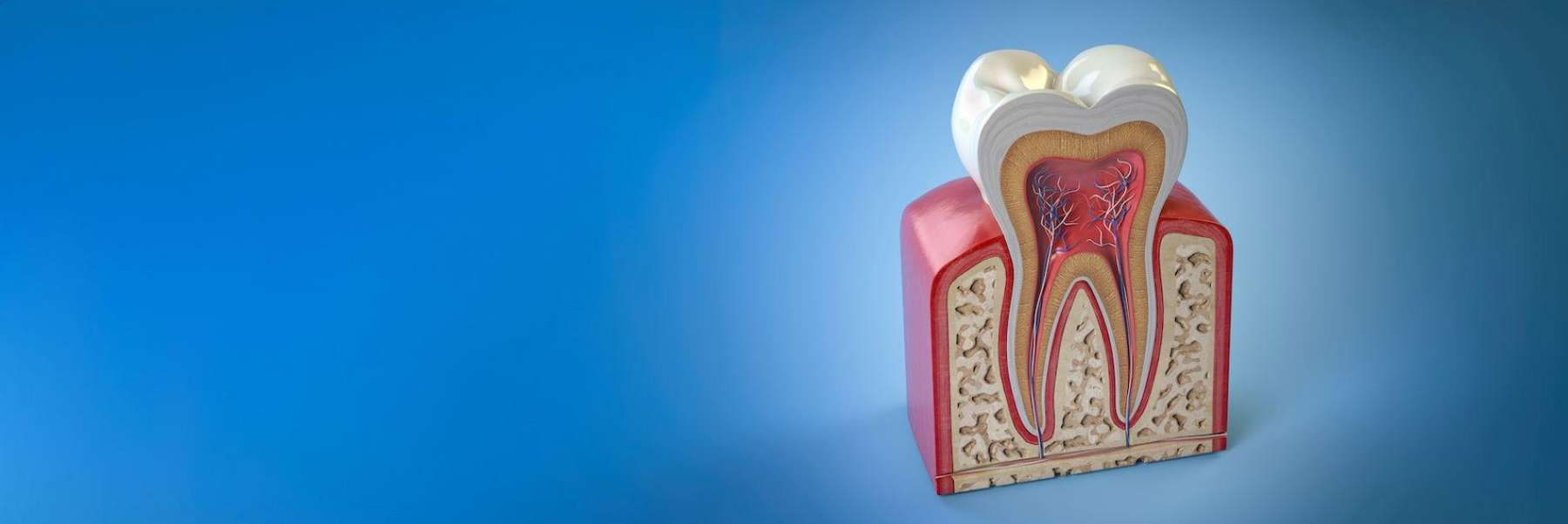
When you drink something hot, is it uncomfortable? When you take a deep breath on a cold day, does it make you wince in pain? If so, you probably have sensitive teeth, making everyday activities unpleasant. Instead of enduring the pain, it’s best to understand the causes and explore your treatment options.
Even though the pain is usually temporary, you can take steps to improve your symptoms. Let’s explore what causes tooth sensitivity and how to treat it so you can feel better soon.
Understanding Why Your Teeth Are Sensitive
Your teeth are made up of layers; understanding the anatomy of your teeth can explain tooth sensitivity. The parts of your tooth include:
- Crown — This is the visible part of your tooth, used for biting and chewing. The shape of each tooth determines its function. For example, your incisors are used for cutting food, and your molars are used for grinding food. Your tooth’s crown is covered with enamel, a hard protective substance.
- Enamel — Your outermost tooth layer is known as your tooth enamel. Tooth enamel is the hardest substance in the human body, but it contains no living cells. Although extremely hard, it can decay, leading to sensitivity issues.
- Dentin — The dentin layer is underneath your tooth enamel. When your enamel wears or erodes, the dentin layer is exposed, leading to pain or discomfort.
- Gumline — This is the area where your tooth and gums meet. When plaque and tartar build up at the gumline, gum disease can occur, leading to sensitivity and other issues.
- Root — Beneath the gumline and embedded in your jawbone is your tooth’s root. It acts as an anchor, holding your tooth in place. When it’s exposed, it can be painful.
- Pulp — The soft tissue in the center of your tooth is known as the pulp. It contains nerve tissue and blood vessels. Whenever nerve tissue is exposed, you will likely feel discomfort or pain.
What Causes Teeth Sensitivity?
There are numerous reasons your teeth may be sensitive; here are some of the most common culprits:
- Brushing too hard — When you brush your teeth too hard or use a toothbrush with hard bristles, your tooth enamel can get worn down, exposing the dentin layer. It’s important to realize that brushing harder doesn’t get your teeth cleaner; it only wears down the enamel layer.
- Gum recession — Your gums can recede or pull away from your teeth due to periodontal disease, brushing too hard, or genetics. This exposes the tooth’s roots, causing sensitivity issues.
- Gum disease — When your gums are inflamed or swollen, the supporting ligaments diminish, exposing your tooth’s roots. This can make your teeth sensitive.
- Cracked or broken teeth — If your teeth are cracked or broken, bacteria can enter the pulp chamber, causing inflammation, infection, and sensitivity.
- Enamel erosion — Acidic foods and drinks can cause enamel erosion, leading to tooth sensitivity.
- Bruxism — Grinding your teeth can wear down your tooth enamel and expose the dentin layer underneath, which can cause discomfort.
At-Home and In-Office Treatment Options
Fortunately, some tooth sensitivity goes away on its own. For example, if you’ve recently had a dental procedure, you may experience discomfort for a short time after treatment. However, you might need treatment if you have worn enamel or exposed tooth roots.
At-Home Treatment Options
Some of the things you can do to treat tooth sensitivity at home include:
- Using desensitizing toothpaste
- Practicing good oral hygiene
- Using a soft-bristled toothbrush
- Avoiding acidic foods and drinks
- Using fluoridated mouthwash
In-Office Treatment Options
Your dentist can help with sensitivity in the following ways:
- Fitting you with a mouthguard to keep you from grinding your teeth
- Performing routine exams and cleanings every six months
- Providing fluoride treatments or sealants during your regular check-ups
- Performing dental bonding to protect exposed root surfaces
Long-Term Management
There are numerous things you can do for long-term management. If you have sensitivity that isn’t from a recent dental procedure, consider these tips:
- Visit your Etobicoke dentist every six months for a routine exam and cleaning.
- Ask your dentist about a custom mouthguard to keep you from grinding your teeth.
- Talk to your dentist about fluoride or dental sealants.
- Stay hydrated by drinking plenty of water.
- Practice good oral hygiene by brushing twice daily and flossing once daily.
- Alter your diet by trying to avoid carbonated drinks, citrus fruits, and wine.
- Drink from a straw to avoid contact with your teeth.
- Rinse your mouth with water after you eat or drink.
Do You Have Tooth Sensitivity in Etobicoke, ON?
If you have sensitive teeth and live in Toronto, Mississauga, Alderwood, or Etobicoke, consider contacting our dental clinic for treatment options! At Toronto Lakeside Dental, we don’t want you to live with the discomfort of tooth sensitivity; you can call us at (416) 503-3335 to schedule an appointment.
We look forward to hearing from you.
